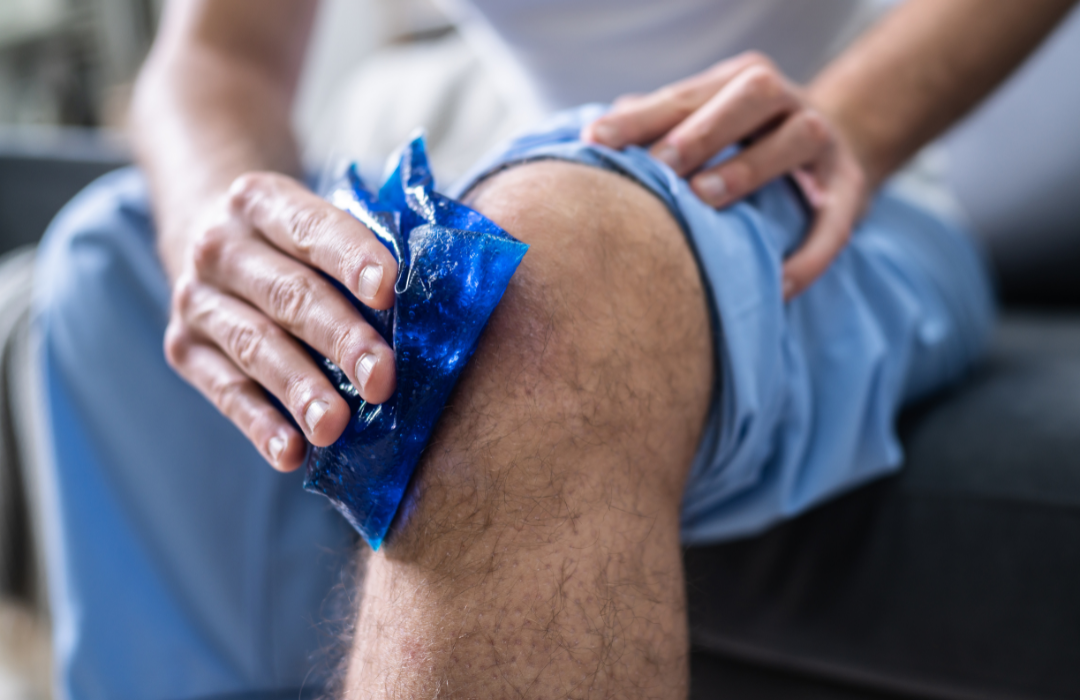Four months post-knee replacement surgery marks a significant milestone in the recovery journey. At this stage, patients often notice considerable improvements in mobility and a reduction in pain. However, challenges like residual swelling, stiffness, and ongoing pain management may persist. This article delves into the common experiences patients face at this point in recovery, offering expert advice on managing symptoms and optimizing long-term outcomes.
Are you navigating knee replacement recovery? Book an appointment with experienced orthopedic surgeons in India for more personalized advice.
Overview of Knee Replacement Surgery
Knee replacement surgeries are a testament to modern medicine’s ability to restore mobility and relieve pain. Knee replacement surgery involves replacing the damaged or diseased parts of the knee joint with artificial components.
Orthopedic surgeons recommend this for people with severe arthritis or injury.
In 2024, the procedure continues to be a hope for millions suffering from debilitating knee conditions. With arthritis projected to impact 78.4 million adults by 2040, the relevance of knee replacement surgery is more pronounced than ever.
It greatly improves quality of life by reducing pain and improving mobility. The time for recovery can vary. But the first few months are crucial. They are crucial for rehab. They also help get the best results from surgery.
What to Expect 4 Months After Knee Replacement?
After surgery, most patients have less pain. They can do many daily activities with more ease. Physical therapy is key to recovery. It focuses on strengthening the muscles around the knee and increasing flexibility. Patients often still have some discomfort. Studies suggest that post-operative care is crucial to the patient’s progress.
Recovery 4 Months After Knee Replacement Surgery:
- Physical Function: By the 4 month mark, patients experience significant pain and physical function improvements. However, recovery rates can vary based on individual factors such as age, preoperative health status, and adherence to rehabilitation protocols.
- Quality of Life: Studies have shown that quality of life outcomes can improve longitudinally after knee replacement surgery.
Potential Problems at 4 Months:
- Stiffness and Pain: Some patients may still experience stiffness and pain, affecting their ability to perform daily activities. Ongoing physiotherapy and exercises may help relieve these issues.
- Implant Issues: There could be concerns about the implant, such as wear or loosening, which may need to be monitored by the surgical team.
- Swelling & pain: Mild to moderate swelling can persist for 3 to 6 months after surgery
Is It Normal to Feel Numbness or Swelling Around the Knee?
Numbness and swelling are common up to several months after surgery as the body continues to heal. Numbness may result from nerve adjustments or minor trauma during surgery, whereas swelling is a normal part of the inflammatory response to surgery.
Causes of Pain 4 Months After Knee Replacement Surgery
- Incomplete Healing: The body may still be healing from the surgery. Bones and tissues around the new joint take time to recover fully.
- Overexertion: Doing too much strenuous activity too soon can aggravate the knee. It's important to follow a balanced rehabilitation program.
- Scar Tissue Formation: Scar tissue can form around the joint as the body heals. This tissue can cause stiffness and pain during movement.
- Inflammation: Inflammation is natural as part of healing. But too much can cause extra pain.
- Alignment Issues: The joint can have alignment issues. It isn't perfectly aligned. This can cause uneven stress on the knee. That stress can cause pain during some activities.
- Nerve Damage: Surgery can hurt nearby nerves for a short or long time. It can cause pain that lasts even after the surgery site has healed.
- Arthritis in other Joints: Sometimes, knee pain can be due to arthritis in other areas, like the hips or the other knee. This arthritis keeps stressing the replaced joint.
Managing swelling is crucial! Let us read together and understand how you can do it effectively.
How Can You Manage Swelling and Stiffness at This Stage?

- Elevate Your Leg: Keep your leg above heart level when sitting or lying down to help reduce swelling.
- Apply Ice: Using cold packs on the knee can decrease swelling and pain. Apply ice wrapped in a cloth for 20 minutes at a time. (Only if the doctor recommends)
- Stay Active: Gentle activities like walking or using a stationary bike can improve blood flow and help reduce stiffness.
- Compression Wear: Wearing compression stockings or wraps might help keep swelling under control.
- Physical Therapy: Continue with prescribed physical therapy exercises to strengthen the knee and improve flexibility.
- Medication: Over-the-counter anti-inflammatory medications, such as ibuprofen, can help reduce swelling and pain. Always consult your doctor before starting any new medication.
- Proper Rest: Balance activity with adequate rest. Overdoing activities can increase swelling and delay healing.
- Hydration and Diet: Stay hydrated and maintain a balanced diet rich in anti-inflammatory foods to support your body's healing process.
Still, facing discomfort in your knee? Contact us now! Get guidance from our orthopedic specialists and learn to manage your pain effectively.
Best Exercises to Improve Mobility After Knee Replacement
Exercises to improve mobility after knee replacement should focus on gently stretching and strengthening the joint without placing excessive strain on it.
- Walking
- Stationary cycling
- Controlled knee bends are beneficial.
A physiotherapist can also tailor specific exercises to meet individual recovery needs.
Signs of Infection or Complications to Watch For
- Persistent Fever: A fever that exceeds 100°F (37.8°C) could indicate an infection.
- Increased Redness or Swelling: Any new or worsening redness or swelling around the knee joint.
- Unusual Pain: Pain that intensifies or doesn't improve with time, especially pain that doesn't subside with pain medication.
- Drainage from the Incision: Any pus or unusual fluid leaking from the surgical wound.
- Foul Odor: A bad smell from the incision site can indicate infection.
- Warmth Around the Knee: The area around the knee feels unusually warm to the touch, indicating inflammation or infection.
- Chills: Experiencing shakes or chills can be a symptom of systemic infection.
- Difficulty Bearing Weight: Sudden difficulty in standing or walking on the knee that was not present immediately after surgery.
- Calf Pain: Pain in the calf or leg unrelated to the incision site may suggest a blood clot.
Adapting a healthy routine post-surgery is essential for you. Read further and understand what is best for your body.
Lifestyle Changes Necessary After Knee Replacement
- Stay Physically Active: Incorporate regular, low-impact exercises such as walking, swimming, or cycling to maintain joint flexibility and strength.
- Healthy Diet: Eat a balanced diet rich in vitamins, minerals, and antioxidants to help your body heal and manage inflammation. Include plenty of fruits, vegetables, lean proteins, and whole grains.
- Weight Management: Maintaining a healthy weight reduces stress on your new joint, prolonging its functional lifespan and reducing pain levels.
- Avoid High-Impact Activities: Steer clear of activities that put excessive stress on your knee, like running, jumping, or lifting heavy weights.
- Home Safety: Modify your living space to prevent falls. This can include installing grab bars in the bathroom, securing loose rugs, and ensuring good lighting throughout your home.
- Ergonomic Adjustments: Use chairs and toilets with higher seats to reduce strain when sitting down or standing up. Consider using supportive devices such as canes or walkers as recommended by your healthcare provider.
- Regular Medical Check-Ups: Keep up with regular appointments with your healthcare provider to monitor the health of your knee replacement and overall well-being.
- Quit Smoking: Smoking can delay wound healing and increase the risk of complications after surgery. Quitting smoking is crucial for better recovery and long-term health.
Discover tailored therapies and expert tips for a speedy recovery – let's say goodbye to swelling together!" Schedule a Consultation today.
Conclusion
Reaching the four-month milestone after knee replacement surgery is a sign of significant progress, though it's important to continue managing health proactively. Regular follow-ups with healthcare providers, physical therapy adherence, and monitoring new or worsening symptoms are vital to ensuring a smooth and successful recovery.
References:
FAQs
How Should You Care for Your Knee at Home After Surgery?
Keep the surgical area clean and dry. Follow your surgeon's instructions on how to change the dressing. Also, continue with prescribed exercises to maintain joint mobility and strength.
How Long Should You Continue Using Support Like Walkers or Canes?
Use walkers, canes, or other assistive devices as long as needed to keep balance and move. You'll need them until you can walk independently without pain or falling.
When Can You Expect to Return to Normal Activities?
The timeline for returning to normal activities varies. But, most patients can resume everyday activities within 3 to 6 months after surgery. This depends on their health and the progress of their recovery.






